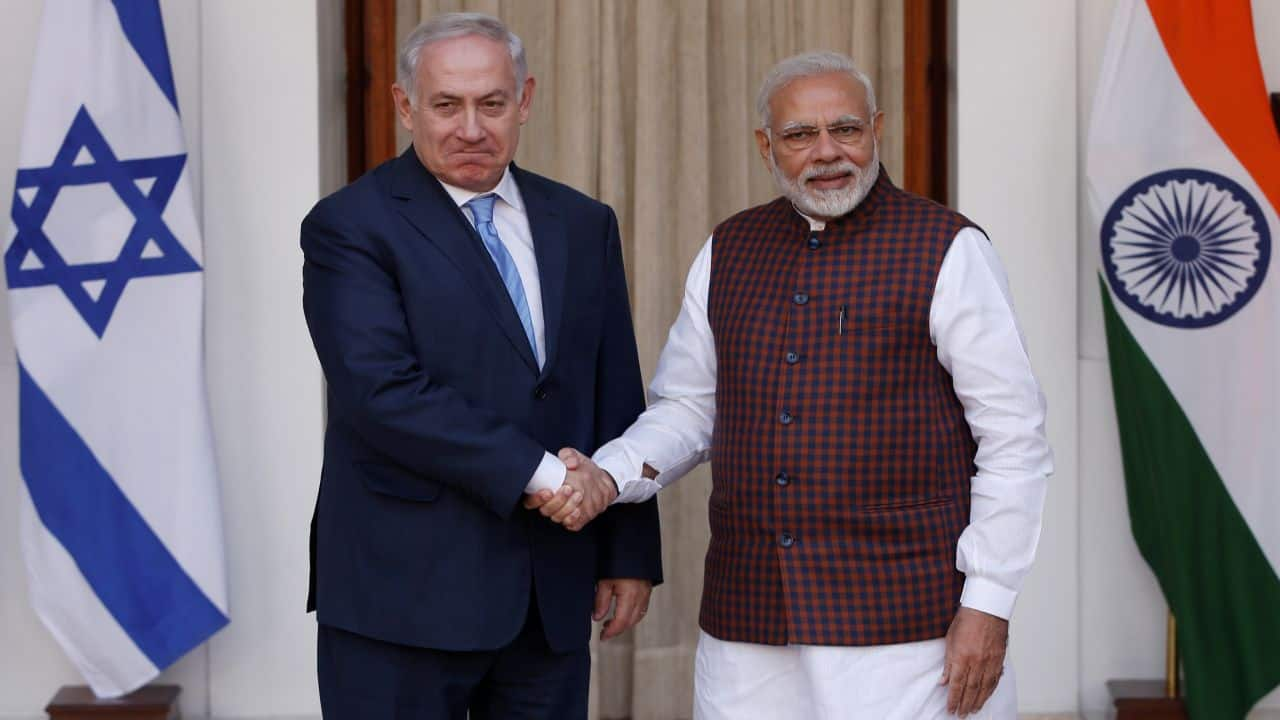Israel-Iran Conflict Escalation Roils Global Markets, Surges Oil and Gold Prices

Global financial markets experienced significant turmoil on Friday, June 13, 2025, following a series of Israeli airstrikes against Iran, a development that rapidly escalated geopolitical tensions in the Middle East. Israel Prime Minister Benjamin Netanyahu announced a "targeted military operation" and "preemptive strike" named 'Rising Lion' against Iran's nuclear and ballistic missile programs, specifically hitting the main enrichment site at Natanz, targeting leading nuclear scientists, and striking the core of its ballistic missile development. Netanyahu stated the operation would continue "for as many days as it takes to remove this threat" to Israel's survival. In response, Israel declared a special state of emergency in anticipation of Iranian retaliation. Iranian state media also reported the death of Hossein Salami, commander-in-chief of Iran's Revolutionary Guards Corps (IRGC), during the strikes. U.S. Secretary of State Marco Rubio clarified that the United States was not involved in these strikes, asserting Israel had taken "unilateral action" for its self-defense and warned Iran against targeting U.S. interests.
The immediate fallout was most pronounced in oil markets, where crude futures surged dramatically. Global benchmark Brent futures with August delivery jumped as much as 11-13%, reaching $74.25 to $77.02 per barrel, while the U.S. West Texas Intermediate contract with July expiry rose 7.76% to 11.36%, trading between $73.32 and $75.77 per barrel. This sharp increase, driven by concerns over oil supply disruptions from the volatile Middle East, led some analysts to forecast potential spikes to $80 or even $130 per barrel if the Strait of Hormuz, a critical chokepoint for one-fifth of the world's oil supply, faced blockade or broader conflict. However, experts like Ellen Wald of Washington Ivy Advisors noted that Iranian oil facilities were not directly targeted, and Iran would face severe retaliation and economic pressure from major customers like China if it attempted to impede oil passage through the Strait of Hormuz. OPEC's May report indicated Iranian production at 3.305 million barrels per day in April. While Saudi Arabia and UAE hold significant spare capacity that could theoretically offset Iranian exports, the time required to ramp up production (30-60 days) could create a risk premium. For Indian oil companies, the crude price surge was positive for upstream firms like ONGC, but raised concerns for downstream public sector oil marketing companies (OMCs) like BPPL, HPPL, and Indian Oil Corporation due to potential under-recoveries on domestic LPG and kerosene sales.
The intensifying geopolitical tensions triggered a widespread "risk-off" sentiment across global financial markets. Equity indices plunged, with S&P 500 futures retreating 1.6% and Asian stocks dropping 1.1%. In India, benchmark indices Sensex and Nifty tumbled over 1% in early trading, reaching intraday lows of 80,354.59 and 24,473 respectively. Major sectoral gauges, including Nifty Oil & Gas, Bank, IT, Auto, Metal, and PSU Bank, registered losses. Investors rushed to safe-haven assets, with gold prices soaring above $3,425 per ounce, reaching their highest level since May. This rally in gold was amplified by favorable economic conditions such as easing U.S. inflation and a weakening dollar, reinforcing its role as a critical hedge during uncertainty. Analysts suggested that overcoming the $3,400 threshold could pave the way for gold to test $3,500 if tensions persist, although geopolitically driven spikes often prove short-lived.
In contrast to the broader market decline, shares of defence and shipping companies rallied sharply on Friday, propelled by the escalating conflict. Shipping Corporation of India (SCI) surged over 10%, and GE Shipping gained 5.2%, partly supported by a sharp 50% month-on-month rise in the Baltic Dry Index (BDI), as vessels were expected to avoid Middle Eastern waters. GE Shipping, with nearly 50% of its fleet in oil and product tankers, was highlighted as a strong play on rising freight rates. Among defence stocks, Ideaforge led with an 8.1% jump, followed by gains in Hindustan Aeronautics Ltd (HAL), Bharat Electronics (BEL), Paras Defence, Garden Reach Shipbuilders (GRSE), Cochin Shipyard, Zen Technologies, Bharat Dynamics (BDL), and Astra Microwave. This rally was bolstered by structural tailwinds for the Indian defence sector, including record defence exports of Rs 23,600 crore in FY25, ongoing emergency procurement worth over Rs 40,000 crore, and fast-tracked CCS-approved projects totaling Rs 22,500 crore. India's focus on indigenisation under the "Atmanirbhar Bharat" initiative, coupled with increased global demand and budget allocations from Europe and the Middle East, is expected to further boost order books and margins for domestic defence firms, especially in areas like drones, missile systems, and space surveillance.
Cryptocurrency markets also felt the impact, experiencing a significant downturn. Bitcoin (BTC) fell below $103,000, trading around $104,458 after touching an intraday low of $102,822, and dropping over 4% in 24 hours. Ethereum (ETH) plunged nearly 9% to $2,512, and the total crypto market capitalization decreased by approximately $140 billion. This sharp selloff across crypto assets was directly linked to the risk-off sentiment triggered by the conflict. While experts characterized this as a "sentiment reset" rather than a structural breakdown, highlighting strong underlying fundamentals, the volatility underscored how closely crypto markets now mirror broader macro events. Technical indicators showed Bitcoin's drop below key support zones, leading to over $1.4 billion in long positions being liquidated. Although institutional interest in crypto remained steady, the rally in traditional energy stocks like ExxonMobil, which saw a 3.5% gain, temporarily diverted capital from crypto ETFs. Altcoins, including Solana, Avalanche, Chainlink, Dogecoin, and Cardano, also mirrored Bitcoin's decline with steep losses.
The unfolding situation is a "wake-up call" for investors, emphasizing that geopolitical risks are "tangible and imminent." While market volatility is expected to be short-term unless the situation escalates into a broader conflict or economic sanctions affecting global trade, experts advise caution. "Buy on dips" strategies are suggested for high-quality stocks, and investors are recommended to avoid leveraged trades or highly speculative positions. The ongoing tensions highlight the complex interplay between geopolitics, commodity prices, and financial markets, urging investors to remain stock-specific and closely monitor developments, delivery orders, strategic tie-ups, and earnings upgrades.












